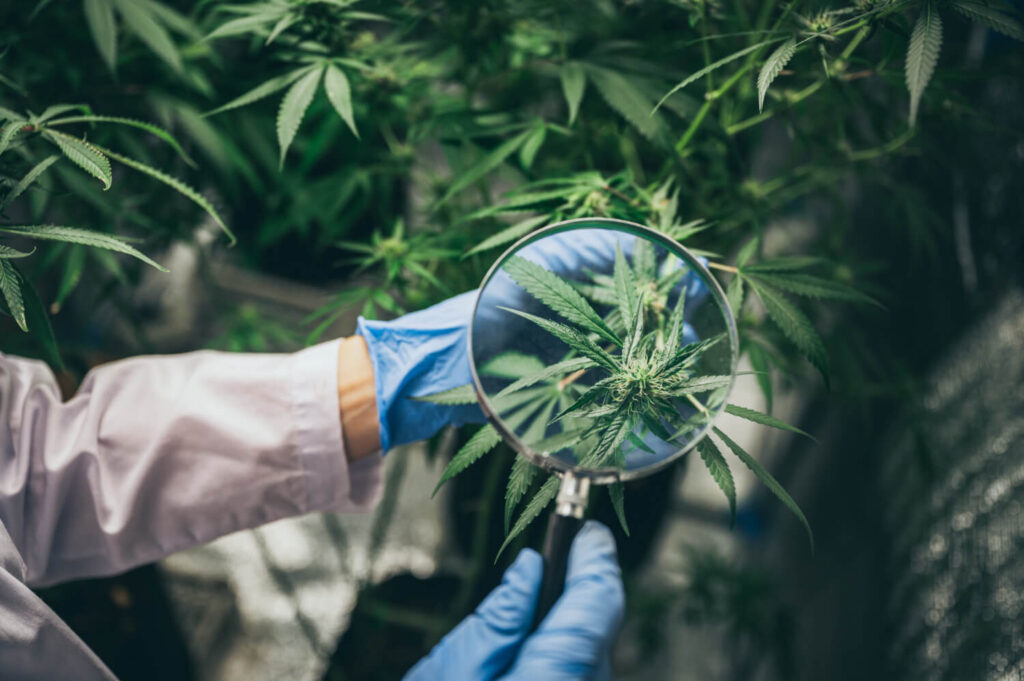Let’s dive deep into a healthy comparison between THCP Vs. THCO. Both are among the most potent cannabinoids to exist in nature. However, with both of them being so promising and beneficial in their effects, it is also important to note that not everything remains so, especially when used unchecked. You must be aware of both their risks and benefits.
THCP vs THC-O: Definitions
Before we dive into the deeper details, let’s first explore what both these types of cannabinoids are, and what their effects are like:
THCP (Tetrahydrocannabiphorol)
- THCP is a cannabinoid, similar to THC, that was identified in cannabis. It stands for Tetrahydrocannabiphorol.
- THCP is considered to be a variant of THC with a longer carbon tail.
- Certain studies propose that THCP may exhibit a heightened affinity for cannabinoid receptors, potentially leading to more potent effects compared to traditional THC.
- Given that THCP is a discovery of more recent times, inquiries into its properties and effects are still in the initial phases of exploration.
THC-O (Tetrahydrocannabinol-O-Acetate)
- THC-O is another analog of THC, where the “O” stands for the ester group. It is formally known as Tetrahydrocannabinol-O-Acetate.
- THC-O is created by acetylating THC, leading to a chemical modification.
- Similar to THCP, research on THC-O is limited, and more studies are needed to understand its safety, efficacy, and potential medical applications.
THCP vs THC-O: Potency and Efficacy
Both THCP and THC-O are two analogs of THC (tetrahydrocannabinol), and while they share similarities, they also have differences, particularly in terms of potency and reported efficacy.
THCP (Tetrahydrocannabiphorol)
- Potency: THCP is thought to possess a greater affinity for cannabinoid receptors compared to traditional THC. Some research indicates that it might be more potent in terms of its ability to bind to CB1 receptors within the endocannabinoid system.
- Efficacy: The potential efficacy of THCP is an area of ongoing research. Initial studies have indicated that it could produce effects similar to THC but with potentially increased potency, leading to more pronounced physiological and psychoactive responses.
THCP (Tetrahydrocannabiphorol)
- Potency: THCP is believed to have a heightened affinity for cannabinoid receptors in comparison to traditional THC. Certain research suggests that it might exhibit increased potency in terms of its binding capacity to CB1 receptors within the endocannabinoid system.
- Efficacy: The potential efficacy of THCP is an area of ongoing research. Initial studies have indicated that it could produce effects similar to THC but with potentially increased potency, leading to more pronounced physiological and psychoactive responses.
THCP vs THC-O: Safety and Side Effects
Due to limited research, information regarding THCP and THC-O is constrained, and ongoing studies on their safety and potential side effects are still in the nascent stages.
THCP (Tetrahydrocannabiphorol):
- Several research studies propose that THCP might exhibit a greater affinity for cannabinoid receptors, potentially resulting in increased potency compared to traditional THC.
- However, the safety implications of this heightened potency remain not entirely comprehended.
- The limited research on THCP leaves the long-term effects, including its impact on cognitive function, mental health, and physical well-being, largely unknown.
- Turning to THC-O (Tetrahydrocannabinol-O-Acetate), users have reported its effects to be more potent than those of traditional THC, describing them as intense.
THC-O (Tetrahydrocannabinol-O-Acetate)
- THC-O is reported to be more potent than traditional THC, and users have described its effects as intense.
- The acetylation process is believed to enhance psychoactive effects, but the safety implications of this intensity are not well-established.
- Some reports suggest that the intense effects of THC-O may increase the risk of overdose or adverse reactions, emphasizing the importance of cautious use.

THCP vs THC-O: Legal Status and Availability
Here is a general overview of the legal status and availability of THCP vs. THCO in the United States.
THC-O
- THC-O, like delta-8 and delta-10, exists in the legal ambiguity surrounding cannabis derivatives. If THC-O is sourced from legal hemp, it falls under the provisions of the 2018 Farm Bill.
- This bill effectively separated hemp and its low-concentration derivatives from the definition of “Marijuana” as outlined in the Controlled Substances Act (CSA).
- Nevertheless, as the understanding of the cannabis industry deepens, there is a growing inclination to explicitly designate such derivatives in legislative frameworks.
- A recent development in this regard is Governor Kristi Noem of South Dakota signing House Bill (HB) 1292 into law, allowing the sale of delta-8 THC, THC-O acetate, and HHC within the state.
- Considering the potential health apprehensions and increased potency linked with THC-O, it is conceivable that it may be expressly identified in further cannabis legislation in the future.
THCP
- Delta-9 THC is the sole cannabinoid scheduled by the Convention on Psychotropic Substances, rendering THC-P technically internationally legal.
- Additionally, if derived from hemp plants rather than marijuana plants, THC-P benefits from the same protections as other legal cannabinoids, such as delta-8, delta-10, and HHC, in the United States.
- Despite its relatively recent emergence, THC-P may not be explicitly mentioned in legislation targeting delta-8, delta-10, or other semi-legal cannabinoids.
- Currently, THC-P is recognized as legal in numerous U.S. states, encompassing Alabama, California, Colorado, Connecticut, Indiana, Kansas, Kentucky, and more.
Consumer Considerations: Choosing Between THCP and THC-O
Selecting between THCP and THC-O requires careful consideration, given the limited research and potential legal complexities associated with these novel cannabinoids.
Research and Safety
Similar to THCP, THC-O lacks extensive research. Be aware of potential risks, especially considering its reported increased potency. Rely on scientific evidence and stay informed.
Product Quality and Purity
Choose products from reputable sources that prioritize quality and purity. Products claiming to contain these cannabinoids may lack regulatory oversight, emphasizing the importance of reliable sources.
Individual Preferences and Tolerance
THCP and THC-O: Consider individual preferences and tolerance levels. The effects of these compounds can vary among individuals. Start with low doses and monitor responses carefully.
Availability
Check the availability of products containing THCP, considering that it may be limited. Verify the legitimacy of sources offering THCP-containing products.
THC-O products might be less readily available compared to traditional THC-containing products. Be cautious about sources and product quality.





